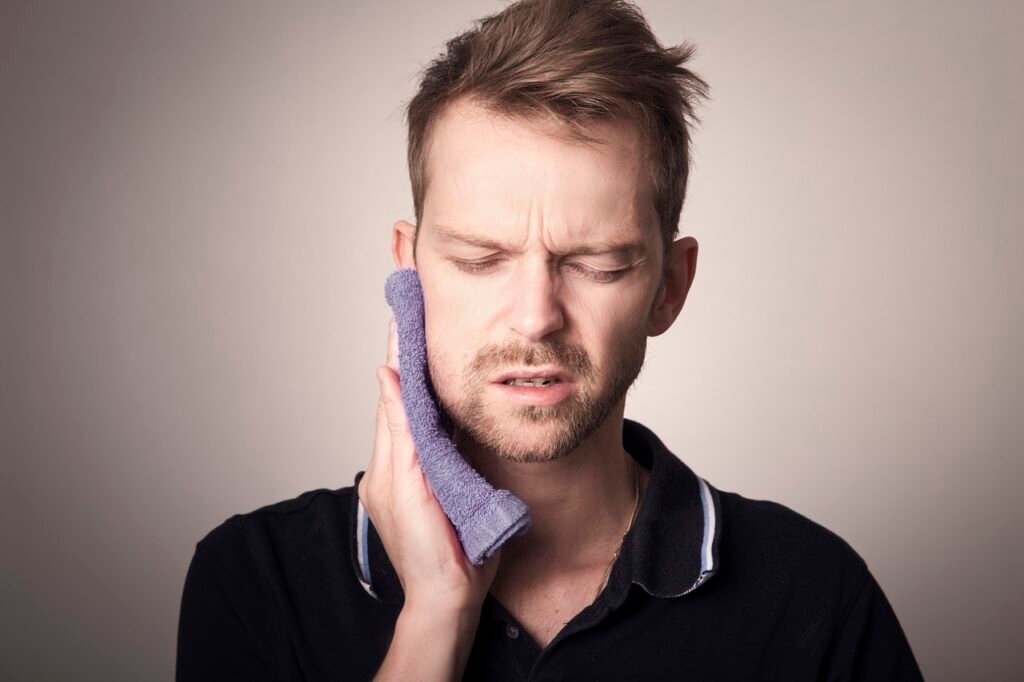Are you suddenly experiencing throbbing pain in your tooth? Ouch, we know how unbearable that can be! Toothaches can strike out of nowhere and disrupt your daily life. But worry not because we’re here to help you figure out what might be causing this sudden tooth pain. In this blog post, we’ll explore the various reasons behind toothaches and provide some prevention tips. So sit back, relax, and let’s dive into the world of dental discomfort together!
Causes of Sudden Tooth Pain
Tooth pain can strike suddenly, causing discomfort and disrupting your daily routine. Understanding the causes behind this sudden tooth pain is essential in finding relief and preventing further dental issues.
- Dental Decay: One common cause of sudden tooth pain is dental decay or cavities. When bacteria accumulate on the surface of your teeth, they produce acids that erode the enamel, leading to sensitivity and sharp pain.
- Gum Infection: Another culprit for sudden tooth pain could be a gum infection or periodontal disease. This occurs when bacteria build up along the gum line, causing inflammation and irritation that radiates to the surrounding teeth.
- Dental Abscess: A dental abscess is a pocket of pus caused by an infection deep within the tooth or gums. It can result from untreated dental decay or trauma to the tooth, leading to a severe throbbing pain that requires immediate attention.
- Teeth Grinding: Chronic teeth grinding (bruxism) can also contribute to sudden tooth pain by wearing down enamel and exposing sensitive layers beneath it.
- Cracked Tooth Syndrome: If you experience intense intermittent pains while biting or chewing, it may be due to cracked tooth syndrome—a condition where small cracks develop in your teeth over time.
Remember that these are just some potential causes of sudden tooth pain; each case should be evaluated individually by a professional dentist for an accurate diagnosis and appropriate treatment plan.
When to See a Dentist
Tooth pain can sometimes be managed with home remedies or over-the-counter treatments. However, there are certain situations when it’s crucial to seek professional dental care. If you experience sudden and severe tooth pain that lasts for more than a day or two, it’s time to schedule an appointment with your dentist.
Another red ag is persistent tooth sensitivity. If you nd yourself wincing in pain every time you eat something hot or cold, this could indicate an underlying issue that needs attention. Furthermore, if you notice swelling around the affected area or have difficulty opening your mouth fully, these symptoms should not be ignored.
Additionally, any signs of infection, like pus discharge or fever, require immediate dental intervention. Ignoring such symptoms can lead to serious complications and the spread of infection.
Moreover, if you have recently undergone dental treatment and are experiencing prolonged discomfort or heightened sensitivity in the treated area, it is important to consult your dentist as soon as possible.
Remember that prevention is always better than cure when it comes to oral health issues. Regular dental check-ups can help detect problems early on before they develop into major concerns. Therefore, even if you don’t currently have any noticeable tooth pain, it’s still advisable to visit your dentist at least twice a year for routine examinations and cleanings.
Taking prompt action by visiting a dentist when necessary will ensure proper diagnosis and timely treatment of any potential dental issues – ultimately saving you from further discomfort down the line!
Prevention of Sudden Tooth Pain
While sudden tooth pain can be a nuisance, there are steps you can take to prevent it from happening in the rst place. Here are some tips to keep your teeth healthy and pain-free:
- Maintain good oral hygiene: Brush your teeth at least twice a day with fluoride toothpaste and oss daily. This helps remove plaque and bacteria that can lead to tooth decay and gum disease.
- Visit your dentist regularly: Regular dental check-ups allow your dentist to identify any potential issues before they become major problems. They can also provide professional cleanings to keep your teeth in optimal condition.
- Watch what you eat: Limit sugary foods and drinks, as they contribute to tooth decay. Opt for a balanced diet rich in fruits, vegetables, lean proteins, and whole grains instead.
- Protect your teeth: If you play contact sports or grind your teeth at night, consider wearing a mouthguard or getting fitted for a nightguard by your dentist.
- Avoid using tobacco products: Smoking or chewing tobacco not only stains your teeth but also increases the risk of gum disease and oral cancer.
- Manage stress levels: Stress has been linked to various oral health issues like bruxism (teeth grinding) or TMJ disorder (jaw joint dysfunction). Practice relaxation techniques such as deep breathing exercises or meditation to help alleviate stress.
By following these preventive measures, you minimize the chances of experiencing sudden tooth pain and maintain excellent overall oral health.
Remember, if you do experience sudden tooth pain despite taking all the precautions mentioned above, don’t hesitate to schedule an appointment with your dentist promptly!
Taking care of our dental health is essential for our overall well-being! So make sure you prioritize regular dental visits along with maintaining proper oral hygiene habits
– because prevention is always better than cure when it comes to sudden tooth pain!

